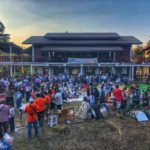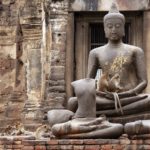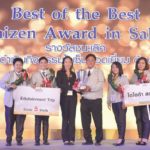
Chorlada Suppaso
- People
-
Feb 12
- Share post
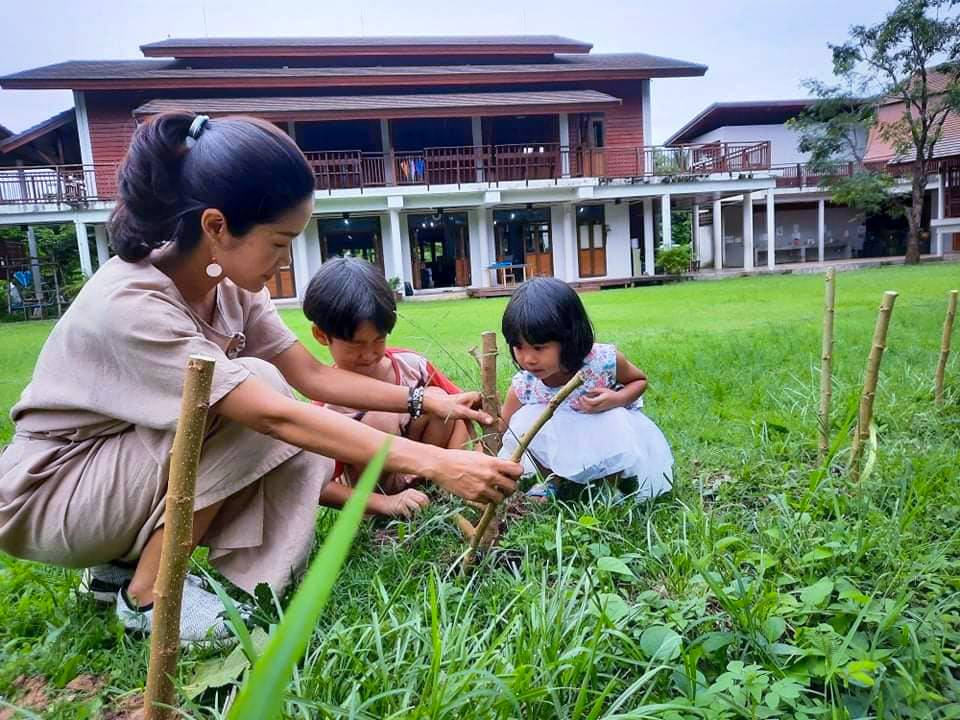
An interview with changemaker Chorlada Suppaso of the Vithidham School
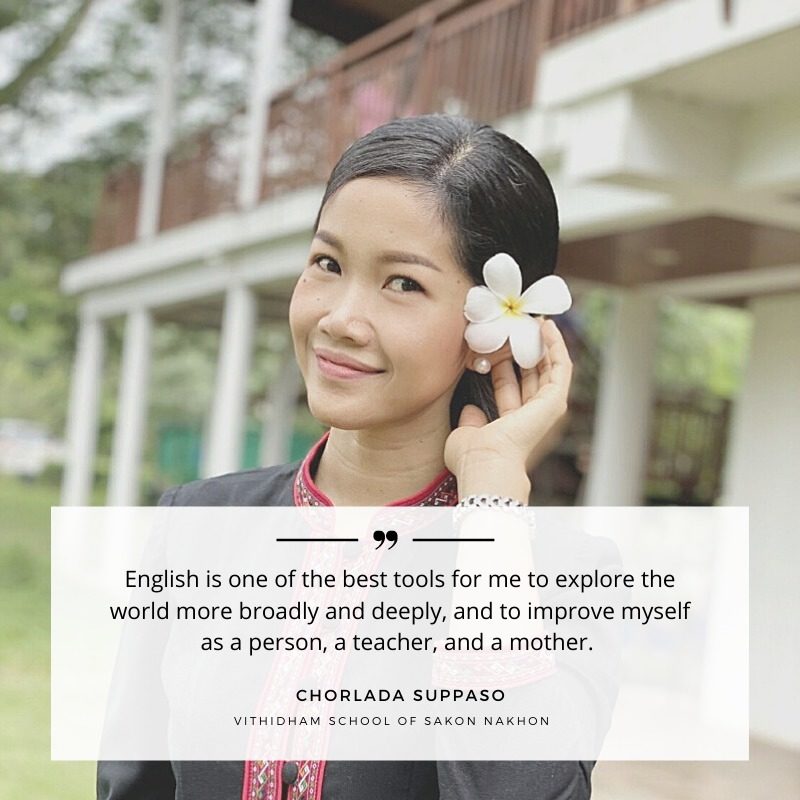
Can you tell me a little about your childhood? Where in Sakon Nakhon did you grow up, what did your parents do, where did you go to school, etc.
Chorlada Suppaso: I was born and raised in a small village called Hang Hong, approximately 10 km away from the city. My father, who passed away 11 years ago, was a teacher and artisan. My 87 year-old mom did rice farming throughout her life to support our family. Our family is wonderfully big. There are 9 children, and I’m the youngest. Most of us are teachers.
I started school when I was 7 years old. I still remember vividly my fun years going to the school right across from my home. I went to Sakonraj Witthayanukool School until I finished high school. I studied English as my major and German as my minor at Khon Kaen University. Then I worked for international organizations for five years before I went to graduate school at Chulalongkorn University.
Please tell me more about Chulalongkorn’s International Language Graduate Program. What was the most interesting course you took there? The course which really made an impact on you?
Chorlada Suppaso: The program really gave me great opportunities to learn insightfully about the language of English and how people acquire languages. The professors, both Thais and internationals, have been my role models as teachers and spiritual leaders. The particular courses that I was most inspired by were Current Trends in English Language Teaching, taught by Professor Mary Ann Christison from the University of Utah, and those about curriculum development and materials development.
What I have learned from these courses match my belief in child development that all children are different. They learn things differently, and they all can develop successfully. That means we as teachers need to work with them individually and holistically through various approaches based on their developmental needs.
I can say that this learning experience is very powerful, and it has been one of the fundamental pillars of my life and career path. When facing challenges, it’s a wonderful reminder and keeps me right on track.
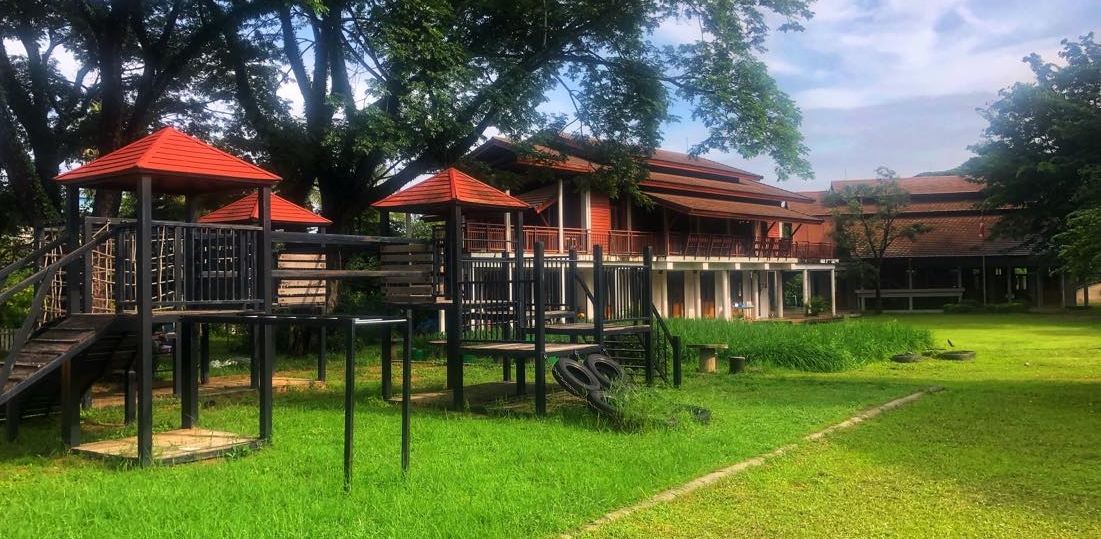
You are the Head of Vithidham School’s Secondary School. Can you describe what makes Vithidham school unique? How is it different from other schools in Sakon Nakhon?
Chorlada Suppaso: Vithidham bases its curriculum on the holistic development of learners. We believe that everybody is different and can be developed to reach their highest potential. All 3 domains of learning (“head, heart, and hand”) are applied into our practice, both through in class and out of class activities. Project-based learning also plays a significant role in our curriculum, as students learn through various hands-on activities, field trips, and social engagement. Eventually, they can construct their own knowledge and present it in various ways. And since we have smaller number of students in each class, teachers are able to manage the classes well.
Moreover, all Vithidham teachers are also engaged in a number of team-based activities, anthroposophy-based workshops, and inner-self development activities. As usual we all are different, but I am happy to say that we share “the energy”. It’s so rare to find such a positive and effective working environment. And I found it here.
You recently started a business AarLiz Homemade Oatmeal Soft Cookies. What inspired you to start a cookie business?
Chorlada Suppaso: I always wanted to learn to bake cookies and make healthier recipes for my sons. Fortunately, my friends, a couple from the US, taught me how to bake oatmeal soft cookies years ago. I never thought of having a business until a friend opened a salad café and encouraged me to develop it to be sold there. So, I have been an amateur baker since then.

You are fluent in English. How has learning English helped you succeed in life?
Chorlada Suppaso: Thank you. I do look at languages as tools for communication. That means if I want to be able to use a tool best, I have to really know about it and apply what I learn into my daily practice in every possible way. I still learn and improve my English language skills every day while I teach, work, and live. What I’m trying to say here is that English is one of the best tools for me to explore the world more broadly and deeply, and to improve myself as a person, a teacher, and a mother.
One more thing, English gives me wonderful opportunities for first-hand learning experiences. No need for others’ interpretations.
What was the hardest thing about learning English, and how did you overcome that?
Chorlada Suppaso: Being afraid of making mistakes was my barrier when I was young. Once I was aware of that, I went the opposite way. I tried to find as many opportunities as possible to communicate in English and stay open for any constructive feedback as another way to improve. And it worked. I made some mistakes, of course. I was embarrassed sometimes, but I learned to use the language points the right way. That’s the most important thing for me. Even in my classes, I always encourage my students to try, to experiment. If they do make mistakes, which is likely, I’m happy to help them. And we try again.
Suggest an Interview
Do you know a leading Sakon Nakhon entrepreneur, educator, or professional that we should interview? Contact us below with your suggestion.
- Affirmations in Buddhism & Thailand - June 7, 2025
- Speak Thai Naturally Without the Gymnastics - April 20, 2025
- The Best Learn Thai Podcast and YouTube Channel - April 10, 2025

